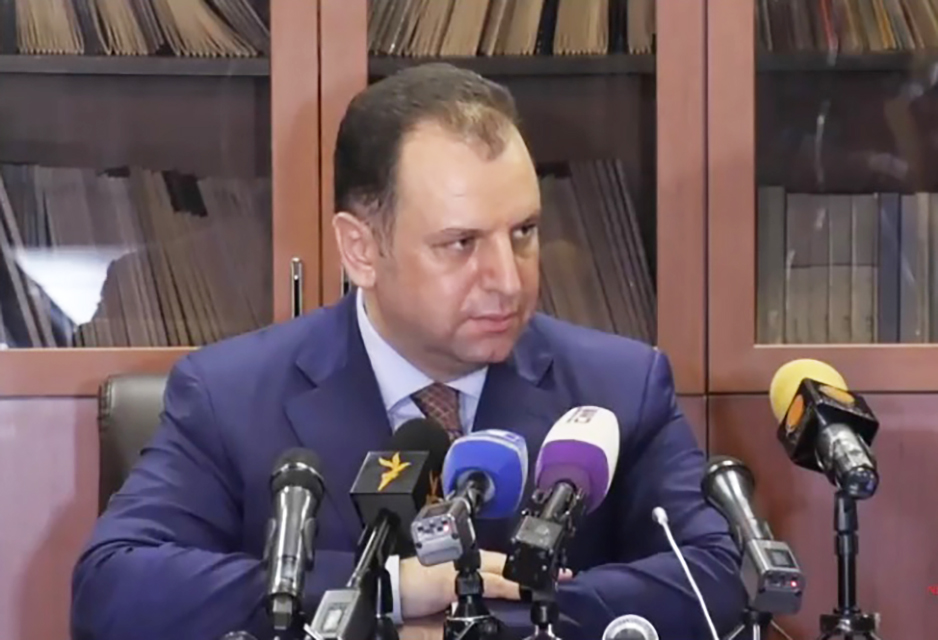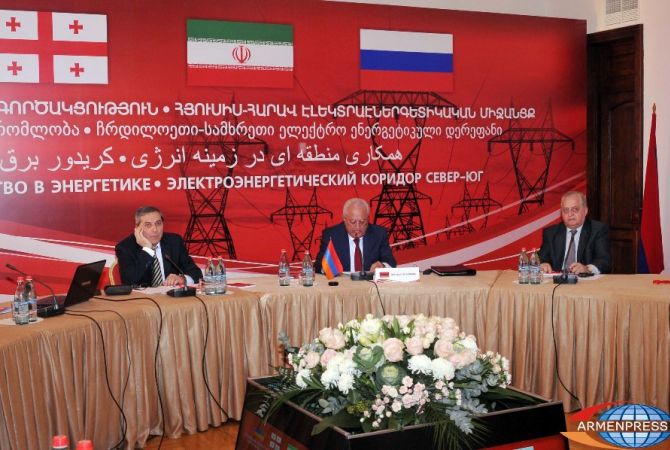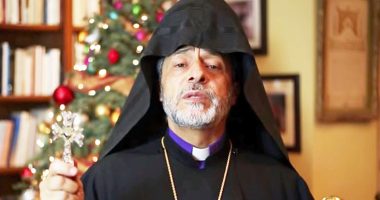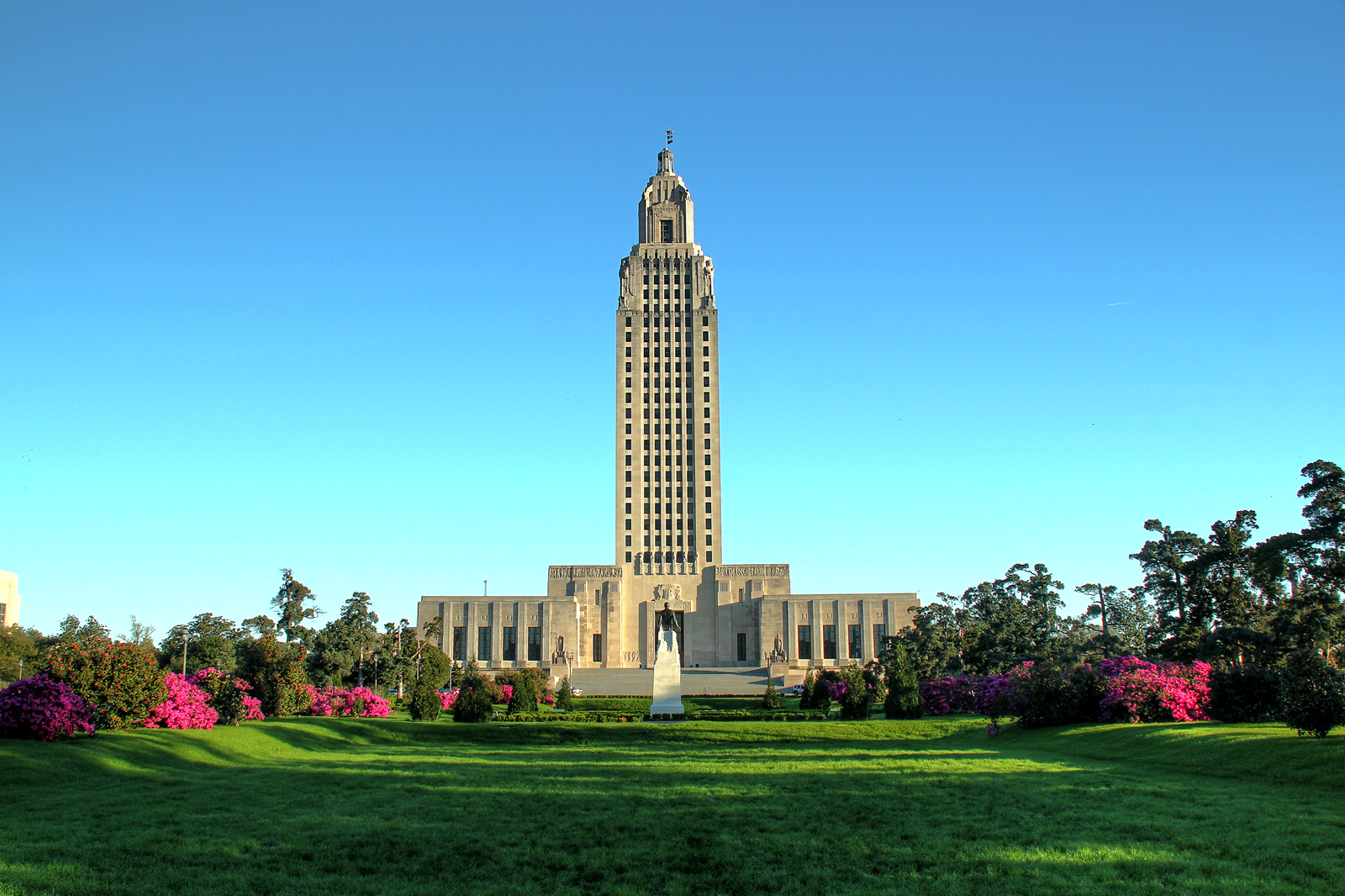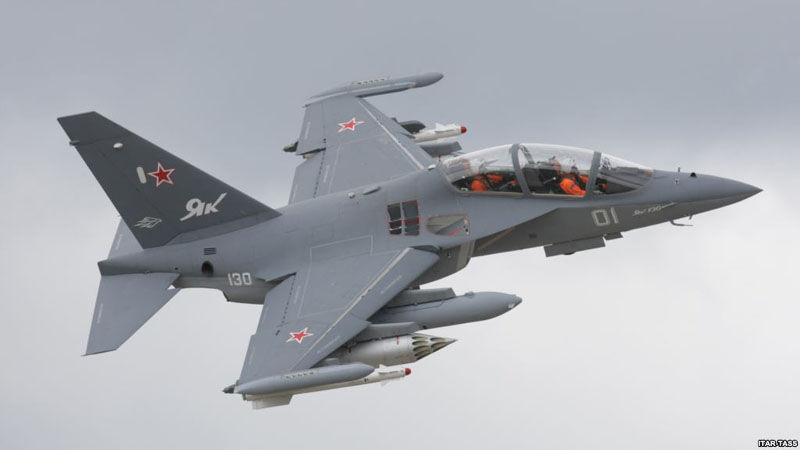“We are unable to Change history, but history is well able to change us to make our future better” – PM Nikol Pashinian
PARIS — Acting Prime Minister Nikol Pashinian attended on Saturday and Sundat ceremonies dedicated to the 100th anniversary of the World War I Armistice and Paris Peace Conference.
Nikol Pashinian and his spouse Anna Hakobian arrived in the Elysee Palace, where they were met by President of the French Republic Emmanuel Macron and Mrs. Brigitte Macron. Then the Acting Prime Minister of Armenia joined the heads of state, government and international organizations participating in the events dedicated to the Armistice Centenary for the Place Charles de Gaulle Square in Paris where the ceremony was to be held.
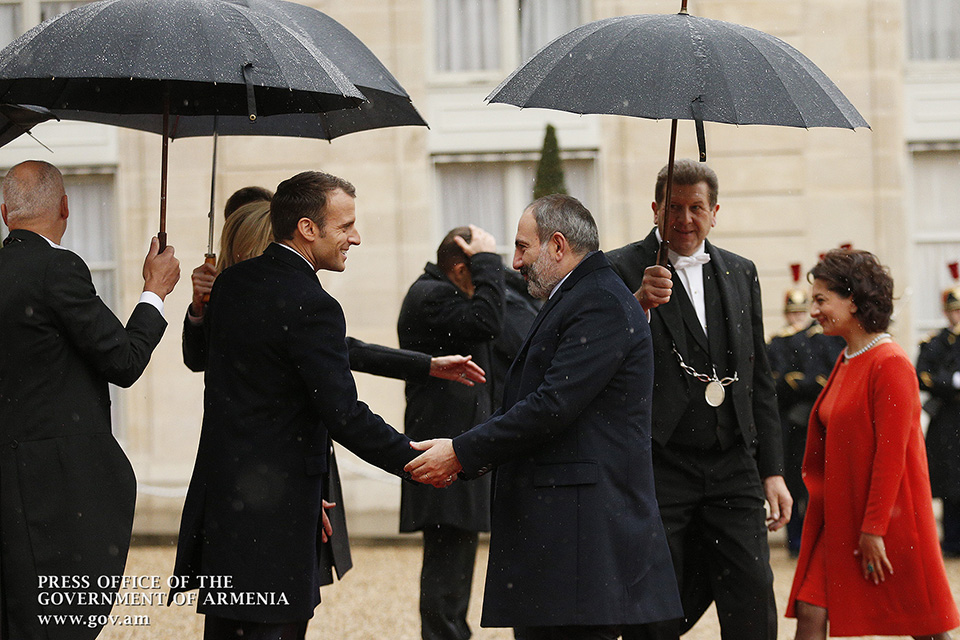

President Emmanuel Macron inspected the military parade, followed by a tribute of honor to those who fell for the sake of France and a minute of silence, which was followed by the national anthem of the French Republic and a cultural program. Students read out the text edited on November 1, 1918, accompanied by musical performances. After the speech delivered by the President of France, the European Union Youth Orchestra performed the Bolero by French composer Maurice Ravel.
The event was concluded with a symbolic ceremony near the eternal fire: students surrounded the French President and, held hands in a chain as a sign of collective revival.
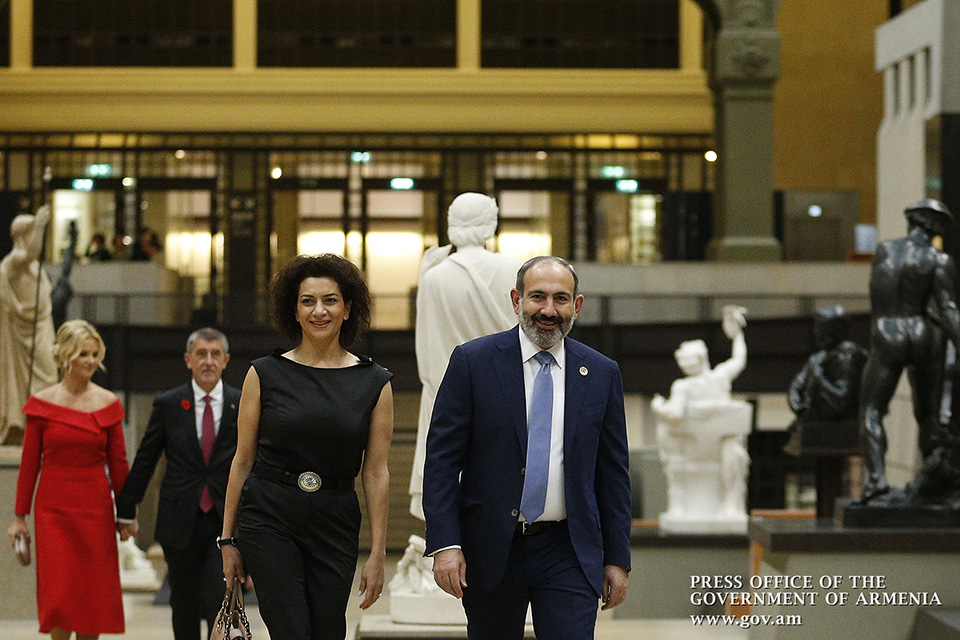

On Sunday, Pashinian attended the Paris Peace Conference. The Forum is being held within the framework of events dedicated to the 100th anniversary of the World War I Ceasefire.
The Conference was opened by introductory remarks made by Paris Peace Conference Executive Committee Vice President Trisha Shetty and President of the French Republic Emmanuel Macron, followed by speeches delivered on the part of German Chancellor Angela Merkel and UN Secretary General Antonio Guterres.
“Distinguished Heads of State and Government,
Ladies and Gentlemen,
We have gathered here to commemorate the 100th anniversary of the end of World War One. This is an event of exceptional significance called to pay tribute to collective memory and to articulate our common message of peace.
Today, we, as the leaders of the nations, which participated in that war, should first of all speak about the lessons learnt from the tragedy of World War One.
When a state wages a war or is tempted to solve problems by military means, it believes in its own strength and victory. Yet, World War One became a global tragedy for all the peoples engaged and resulted in the destruction of its mastermind states.
There is a belief, that from the geopolitical and military perspective there are always winners and losers in wars. However, from the human perspective, no one ever wins. Wars bring only loss, misery and devastation.
And regardless of our common efforts and appeals to learn from the previous mistakes, these lessons are easily forgotten.
Even though one hundred years ago, the humanity realized the need to ban weapon of mass destruction, regrettably it has not prevented the creation of new generations of arms.
It was during World War One that the Entente powers for the first time ever used the definition “crimes against humanity and civilization”, thus condemning the Ottoman rulers for the extermination of 1,5 million Armenians. Later, this horrendous crime was to be termed the first genocide of the 20th century.
Nonetheless, only few decades later the humankind went through Holocaust, genocides in Cambodia, Rwanda, genocides of the Christians and Yezidis in the Middle East, violence against the Rohingya people.
As part of the lessons, learnt from the war the right of the peoples to self-determination was set out in Wilson’s 14 points. Later on it was included in the UN Charter, Helsinki Final Act, and became a basis for the independence of around half of the modern states.
As a result of World War One, the people of the world legally established the right to master their own destiny through the expression of free will. Here, in France I cannot but stress that just days ago, France has clearly reiterated its principled position on this issue: the people of New Caledonia were given the opportunity to conduct a referendum. Painfully, this right is being exercised selectively.
This is why, the decades-long struggle of the people of Nagorno-Karabakh to determine their destiny has not received its proper legal solution. In the 21th century it is absolutely unacceptable that people’s mere desire to exercise its right to self-determination may turn into an existential menace.
As a result of World War One the world established the League of Nations, the prototype for the United Nations, with the ultimate goal of achieving peace.
Nonetheless, the manifestations of extremism in the contemporary world are on the rise. We established those institutions first and foremost to protect human rights. Yet, today we are witnessing daily abuse of the most fundamental human right – the right to life.
After the end of the First World War, many believed that it would be the last ever war fought. However, the Second World War was not long in coming. The humankind entered into a new phase of war and arms race. Unfortunately, up to now we have been unable to put an end to it. Moreover, we get further involved in it every day.
This is why I attach high importance to such meetings. They provide us an opportunity to reflect on our past, on our common history of the humankind. Indeed, we are unable to change that history, and we do not need to. But the history is well able to change us to make our future better.
To this end, we need to learn the most important lesson of World War One. No state can build its success at the cost of others’ misery, no one can gain freedom at the cost of others’ slavery. We put an end to the First World War hundred years ago. And this is a perfect occasion to think of entering a century without wars – a century of peace.
I do believe, that the leaders that have gathered here, in Paris, are well able to achieve it. And this will be the best ever tribute to the innocent victims of the previous century.”
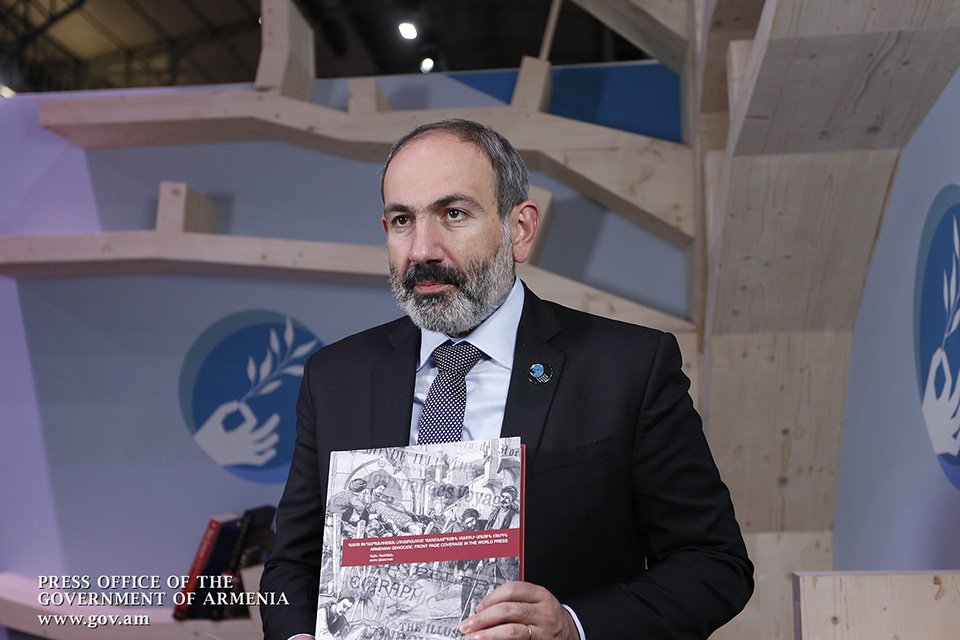

After the speech Nikol Pashinian handed a symbolic publication to the Peace Library, an illustrated book by historian Hayk Demoyan entitled “The Armenian Genocide: Front Page Coverage in the World Media.”
The topics for the Paris Peace Conference are peace and security, environmental protection, development, and inclusive economics.


